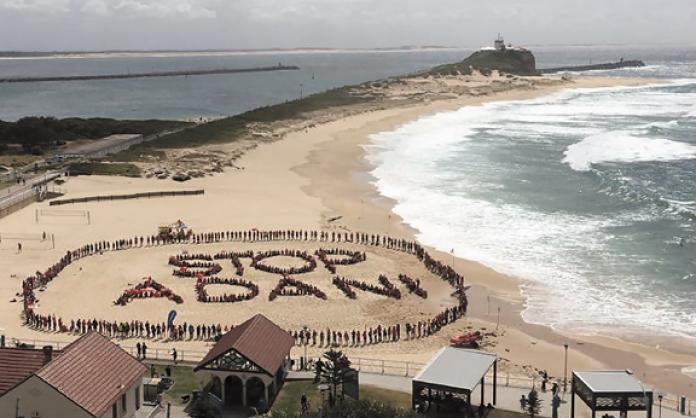As the burning of coal raises atmospheric carbon dioxide to new heights and new chunks of the Earth are hacked up to extract more coal, death by air pollution is becoming another feature of capitalist society.
In 2010-11, approximately 80-115,000 people were killed in India alone by pollution from coal-fired power stations.
This reality has not affected Adani’s proposal to mine the Galilee Basin. The coal that would be mined by the company in Queensland is more dangerous than other coal mined in Australia: its estimated ash content of 26 percent is double the average. Despite this, Adani’s decision has the support of both major political parties.
On 7 October, people around the country joined in a national protest against the construction of Adani’s Carmichael coal mine. There were 45 protests, bringing together thousands to fight the government’s plan to allow the mine to go ahead. A recent ReachTel poll found that 55.6 percent of people oppose the mine. Yet the Queensland Labor government is considering an application to approve a federal subsidised loan to Adani of $1 billion. Already, Adani has been granted 60 years of unlimited water from the Great Artesian Basin.
It is not surprising that so many people oppose the mine. We won’t share in its profits, and it will contribute to immense environmental destruction.
The emissions from coal mining are contributing to extreme weather events. For years, scientists have argued that the more we fill the atmosphere with CO2, the more frequent and extreme natural disasters will become. Adani’s proposed mine would release 128 million tonnes of CO2 into the atmosphere each year.
When Cyclone Debbie hit Queensland this year, the company released toxic sediment into the ocean from the port at Abbot Point, which is set for a huge expansion if the mine goes ahead. The sediment spread out almost directly onto the Great Barrier Reef. Adani was fined a laughable $12,000 by the Queensland government for this crime. The minuscule fine sent a clear message: you can get away with anything you want.
Large sections of the reef have already been bleached due to pollution and ocean warming. This wonder of our natural world is being killed off rapidly. There is no way of replacing it once it’s gone. But for wealthy investors, and for the politicians who rely on them, none of this is a consideration in opening up new mines in the region. According to Adani’s Australian-based chief executive Jeyakumar Janakaraj, “More mines will go there because we are building a 100 million tonne railway and a 120 million tonne port”.
Those who work in the mines would feel the effects most intimately. While they are forced to deal with the consequences of dangerous working conditions, including the re-emergence of black lung disease, the mine owners make profits.
And while working class people feel the brunt of natural disasters more acutely due to lack of resources or inadequate insurance, the wealthy can rebuild their lives and properties at the drop of a hat.
The cost of losing the things that make our world so diverse and beautiful doesn’t measure up to the billions companies make from getting other people to dig up the coal they sell.
As Janakaraj said: “It’s a no-brainer. All they have to do is go and get a contract. Why would they not do it?”









